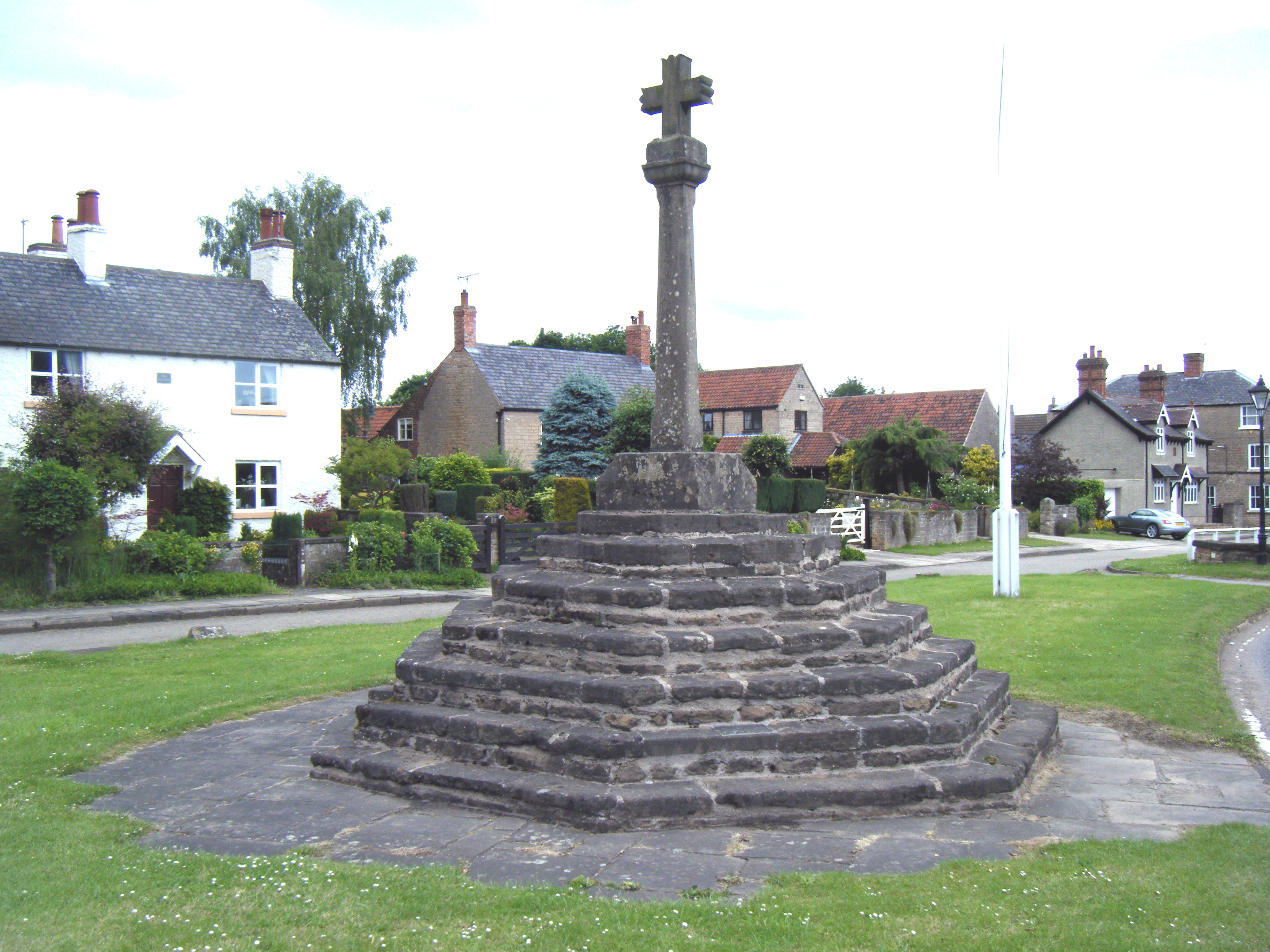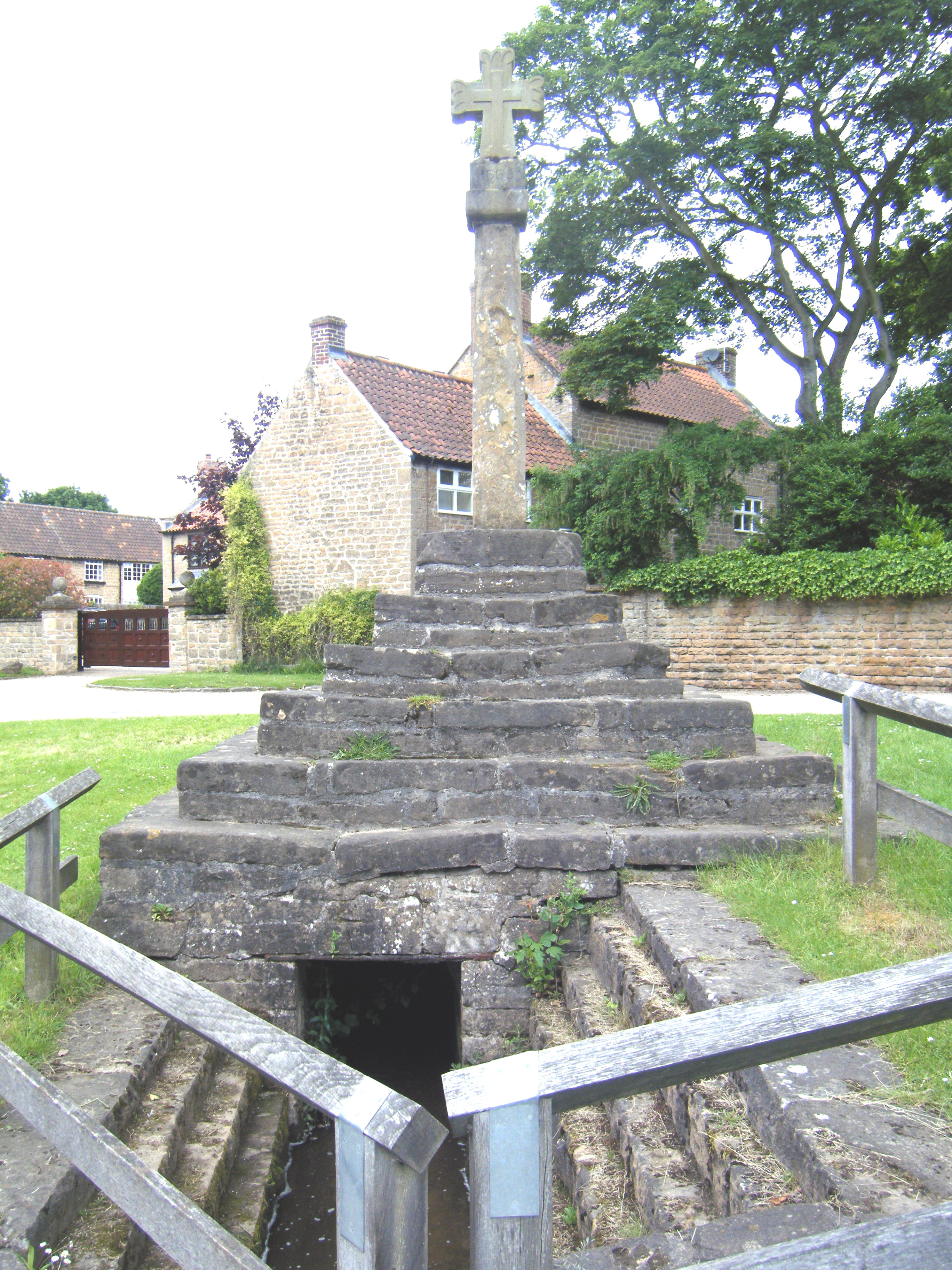Linby
The village of Linby is nine miles north-west of Nottingham. The name is said to originate from the two streams in the main street, known as “the Docks”, which run into the river Leen. A local tale recounts that the humble pancake was invented by the women of Linby to celebrate the defeat of Danish invaders.
The church, dedicated to St. Michael, originates from the 13th century. Stone cottages border a long green with two stone crosses. The cross at the top of the village, with a seven-sided base, is of medieval origin and is thought to be unique in Britain. It was damaged by the Puritans in 1650 and not renovated until 1869. The lower cross dates from 1660 and is thought to celebrate the restoration of the monarchy. The village stream runs underneath this cross. Until 1853 there was a thriving if turbulent framework knitting industry in the village, a target in 1812 for Luddite frame wreckers.
There is still a row of stone-built knitters’ cottages near the village pub, and the village has been designated as a Conservation Area. The main source of employment since the colliery closed in 1988 is agriculture. Linby once had two railway stations, the Midland and the Great Northern, both of which were closed by the 1960s. The Great Northern Goods Weigh Office has been converted to form Linby Heritage Centre while the Great Northern track-bed forms a multi-user route to Newstead Abbey.


